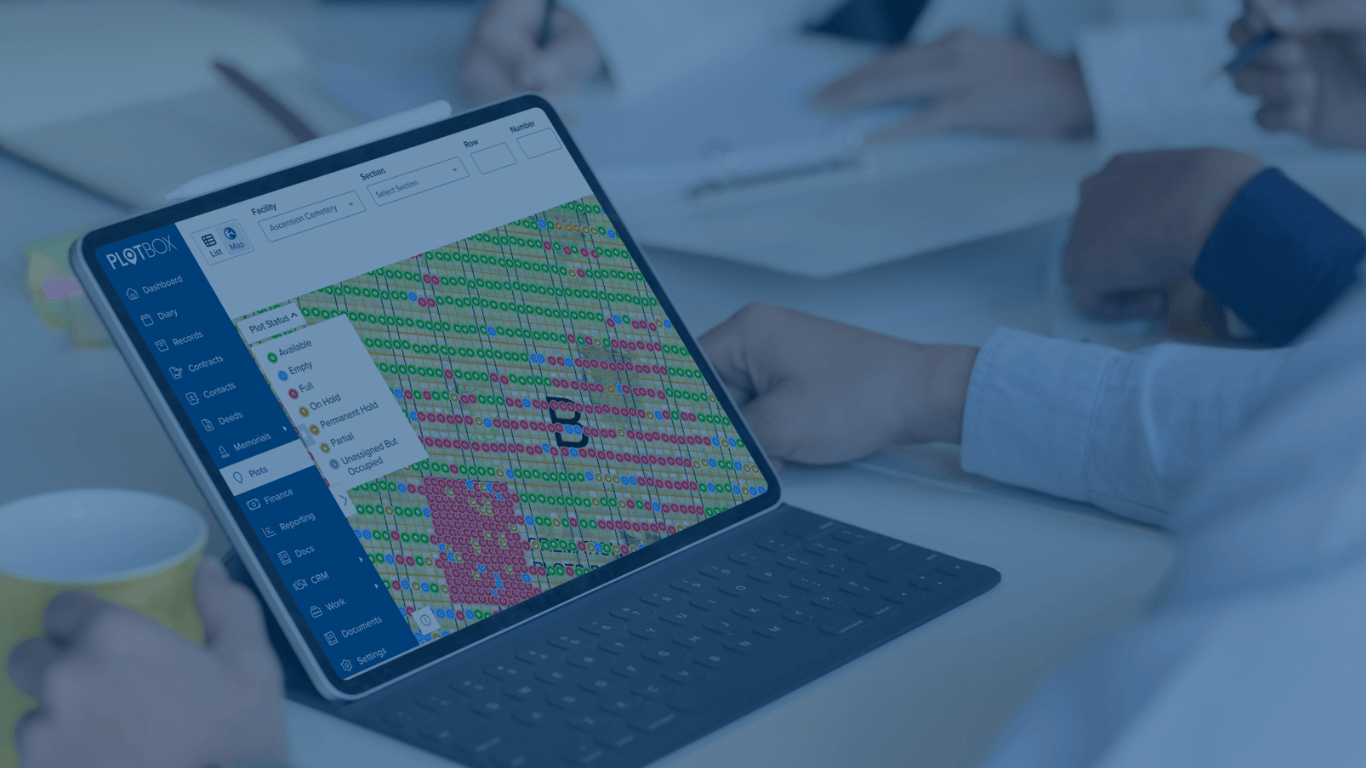Discover how to select the most effective cemetery software for streamlining management operations and maximizing efficiency.
Understanding the Importance of Cemetery Software
Cemetery software plays a crucial role in the efficient management of cemeteries. With the advancement of technology, manual record-keeping and management methods are becoming outdated and inefficient. Cemetery software provides a digital platform that allows cemetery administrators to streamline their operations and improve overall efficiency.
By using cemetery software, administrators can easily maintain and update burial records, track the availability of burial plots, and manage financial transactions related to cemetery services. This software also facilitates the generation of reports and analytics, which can help administrators make informed decisions and plan for the future.
Moreover, cemetery software ensures accurate and secure data storage, reducing the risk of errors and unauthorized access. It simplifies the process of locating gravesites, conducting genealogical research, and managing memorial services. Overall, cemetery software is essential for modern cemeteries looking to enhance their management systems and provide better services to their clients.
Key Features to Look for in Cemetery Software
When choosing cemetery software, it is important to consider the key features that are necessary for efficient management. These features include:
- Burial record management: The software should have a user-friendly interface for maintaining and updating burial records. It should allow easy search and retrieval of information, as well as the ability to add detailed data such as grave location, date of burial, and personal information of the deceased.
- Plot management: The software should provide a visual representation of the cemetery layout, allowing administrators to easily track the availability of burial plots. It should include features like plot reservation, plot assignment, and plot transfer.
- Financial management: The software should have a built-in accounting system to manage financial transactions related to cemetery services. It should support functions such as invoicing, payment tracking, and financial reporting.
- Reporting and analytics: The software should offer comprehensive reporting and analytics capabilities. It should provide customizable reports on various aspects of cemetery operations, such as burial statistics, revenue analysis, and inventory management.
- Integration with other systems: The software should be compatible with other systems used by the cemetery, such as mapping software, genealogical databases, and online memorial platforms.
By considering these key features, cemetery administrators can select software that meets their specific needs and helps improve overall management efficiency.
Factors to Consider When Choosing Cemetery Software
In addition to key features, there are several factors to consider when choosing cemetery software:
- Scalability: The software should be scalable to accommodate the future growth of the cemetery. It should be able to handle an increasing number of burial records, plot reservations, and financial transactions.
- User-friendliness: The software should have an intuitive interface that is easy to navigate and understand. It should require minimal training for administrators and staff to start using it effectively.
- Security: Data security is paramount when it comes to cemetery software. The software should have robust security measures in place to protect sensitive information from unauthorized access or data breaches.
- Customer support: Look for software providers that offer reliable customer support. It is important to have access to technical assistance and prompt resolution of any issues or queries that may arise.
- Cost: Consider the cost of the software and any additional fees, such as maintenance or support charges. Compare the pricing models of different software providers to find the most cost-effective option for your cemetery.
By evaluating these factors, cemetery administrators can make an informed decision and choose software that aligns with their requirements and budget.
Comparing Different Cemetery Software Options
To select the best cemetery software, it is important to compare different options available in the market. Consider the following factors when comparing software:
- Features and functionalities: Assess the features and functionalities offered by each software option and determine if they meet your specific needs.
- User reviews and ratings: Read reviews and ratings from other cemetery administrators who have used the software. Their experiences can provide valuable insights into the software's performance and usability.
- Demo or trial version: Request a demo or trial version of the software to get hands-on experience. This will help you understand its user interface, ease of use, and overall functionality.
- Compatibility: Ensure that the software is compatible with your existing systems and technologies. It should be able to integrate seamlessly without any major technical challenges.
- Vendor reputation and support: Research the reputation of the software vendor. Look for a vendor with a proven track record of providing reliable products and excellent customer support.
By comparing different cemetery software options based on these factors, you can narrow down your choices and find the software that best suits your cemetery's needs.
Making an Informed Decision: Selecting the Best Cemetery Software
Selecting the best cemetery software requires careful consideration and evaluation. Keep the following tips in mind:
- Define your specific requirements: Clearly define your cemetery's requirements and prioritize the features and functionalities that are most important to you.
- Seek recommendations: Reach out to other cemetery administrators or industry experts for recommendations on reliable software options.
- Request references: Ask the software vendor for references from other cemetery clients. Contact these clients to learn about their experiences and satisfaction with the software.
- Consider long-term benefits: Look beyond the initial cost and consider the long-term benefits of the software. Evaluate its potential for scalability, future upgrades, and ongoing support.
- Take advantage of trials or demos: Utilize trial versions or demos offered by software vendors to get hands-on experience and ensure the software meets your expectations.
By following these tips and conducting thorough research, you can make an informed decision and select the best cemetery software that will streamline your management operations and maximize efficiency.
